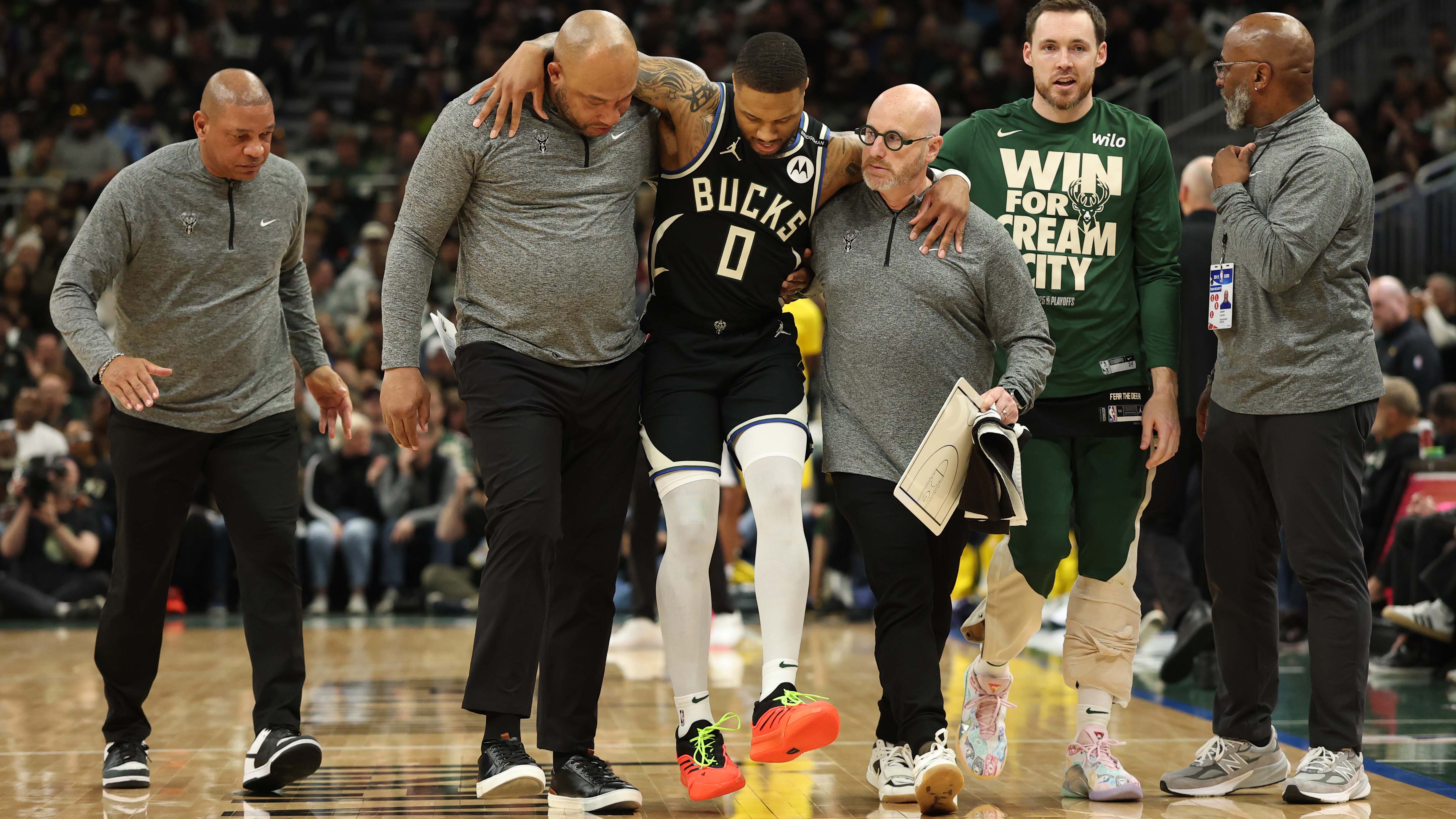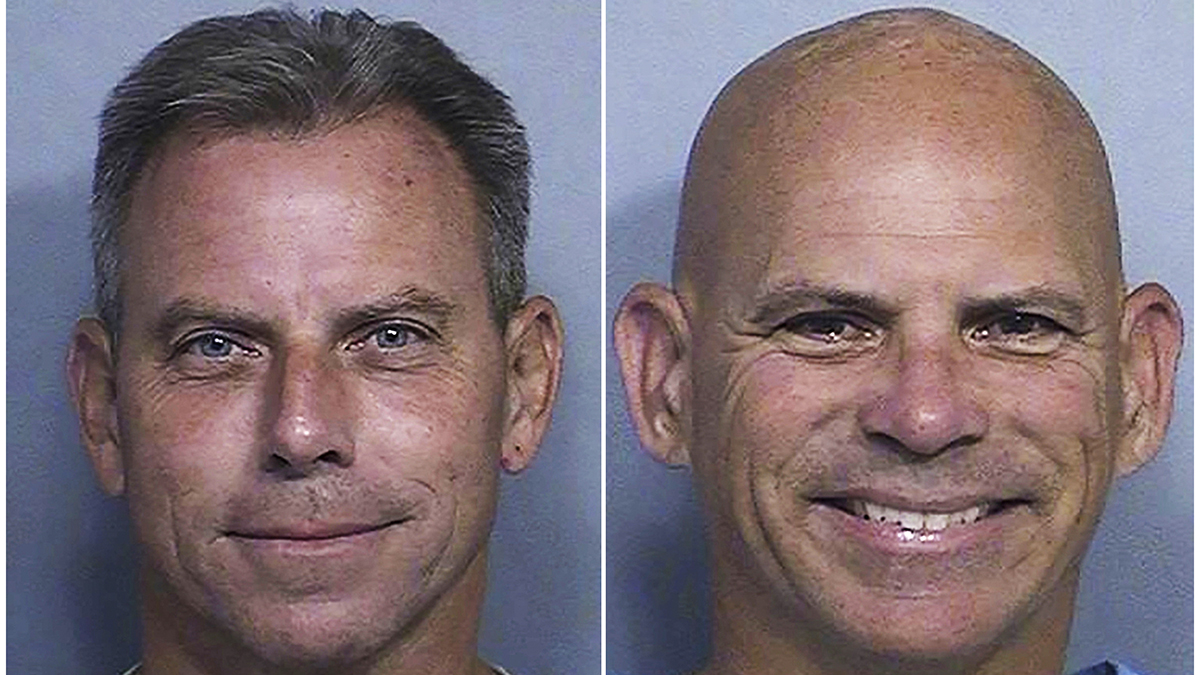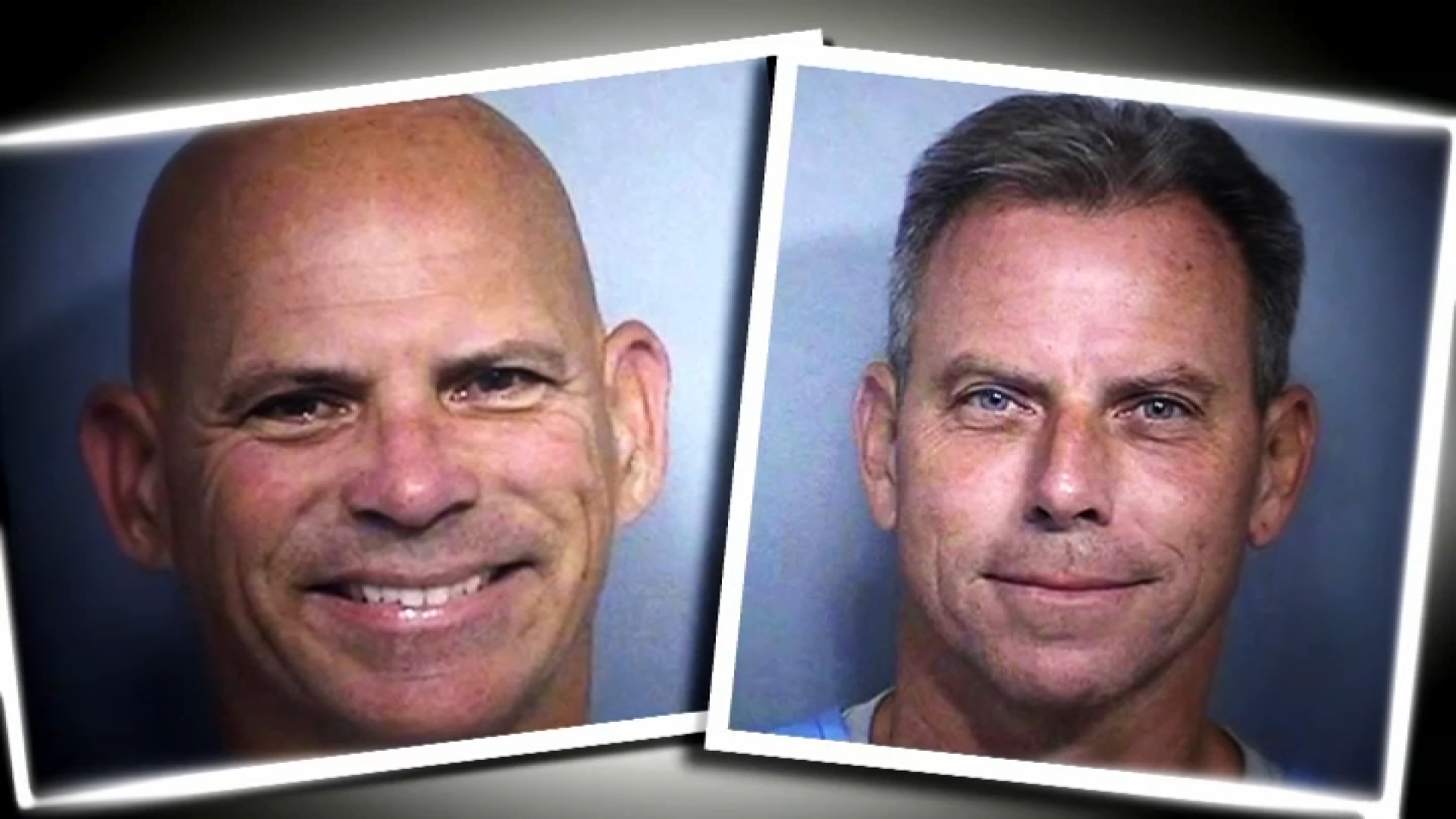Achilles Tear: Damian Lillard's Injury & Recovery Guide
Achilles Down: Understanding Tears, Recovery, and Damian Lillard's Road Back
The Agony of an Achilles Tear: More Than Just a Pain in the Heel
An Achilles tear. Just hearing the phrase can make any athlete, or even a weekend warrior, cringe. It's an injury that strikes fear into the hearts of players across all sports, and for good reason. It's a serious, debilitating injury, notorious for its long recovery times and the potential to sideline even the most elite performers. Now, all eyes are on Damian Lillard, the Milwaukee Bucks star, who recently suffered a non-contact Achilles injury in Game 4 of the first round against the Indiana Pacers. The confirmed tear is devastating news, ending his playoff run prematurely and casting a shadow over his next season. But what exactly *is* an Achilles tear, and what does it mean for Lillard and athletes facing this challenge?
What is the Achilles Tendon, Anyway?
Think of your Achilles tendon as the super-strong cable connecting your calf muscle to your heel bone. It's the thickest and strongest tendon in your body! It's responsible for plantar flexion, which means pointing your toes. Every time you walk, run, jump, or even stand on your tiptoes, you're relying heavily on your Achilles tendon. Without it, you'd struggle to push off the ground.
Why is it Prone to Injury?
Despite its strength, the Achilles tendon is vulnerable. Why? Several factors contribute to Achilles tendon injuries:
- Overuse: Repetitive strain, especially in activities with a lot of jumping and running, can weaken the tendon over time.
- Sudden Increase in Activity: Ramping up your training too quickly without allowing your body to adapt can overload the tendon.
- Tight Calf Muscles: Tight calves put extra stress on the Achilles tendon.
- Inadequate Warm-up: Failing to properly warm up before exercise leaves the tendon less flexible and more susceptible to injury.
- Age: As we age, our tendons naturally lose some elasticity, making them more prone to tears.
- Foot Problems: Issues like flat feet or overpronation (ankle rolling inward) can alter the biomechanics of movement, increasing stress on the Achilles.
Types of Achilles Tears: From Minor Strains to Complete Ruptures
Achilles tendon injuries aren't always created equal. There's a spectrum of severity, ranging from mild strains to complete ruptures.
Achilles Tendinitis: The Warning Signs
Achilles tendinitis is an inflammation of the tendon. It's often characterized by:
- Pain and stiffness along the Achilles tendon, especially in the morning or after exercise.
- Mild swelling around the tendon.
- Tenderness to the touch.
Ignoring these warning signs can lead to more serious problems.
Partial Tears: A Step Away from Rupture
A partial tear involves a tear of some, but not all, of the fibers of the Achilles tendon. Symptoms are similar to tendinitis but more severe, and may include:
- Sharper, more intense pain.
- Increased swelling and bruising.
- Difficulty pointing the toes or pushing off.
Complete Ruptures: The "Pop" Heard 'Round the World
A complete Achilles rupture is exactly what it sounds like: a full tear of the tendon. This is often accompanied by:
- A sudden, sharp pain in the back of the ankle or calf.
- A popping or snapping sensation.
- Inability to point the toes or push off the ground.
- A noticeable gap or indentation in the tendon area.
This is the injury that typically requires surgical intervention.
Diagnosing the Injury: Beyond the Sideline Assessment
Suspect an Achilles injury? Don't self-diagnose! A proper diagnosis is essential for determining the severity of the injury and developing an appropriate treatment plan.
The Physical Exam: The First Line of Defense
A skilled doctor can often diagnose an Achilles tear based on a physical examination. They'll assess your range of motion, strength, and reflexes. The Thompson Test is a common assessment where the doctor squeezes the calf muscle. If the foot doesn't plantar flex (point downwards), it indicates a likely Achilles rupture.
Imaging Tests: Confirming the Diagnosis
While a physical exam is crucial, imaging tests provide a more definitive diagnosis. An MRI (Magnetic Resonance Imaging) is the gold standard for visualizing soft tissues like the Achilles tendon. It can clearly show the extent of the tear and any associated damage.
Treatment Options: Surgery vs. Non-Surgical Approaches
The treatment approach for an Achilles tear depends on several factors, including the severity of the tear, the patient's age, activity level, and overall health.
Surgical Repair: Stitching Things Back Together
Surgery is often recommended for complete Achilles ruptures, especially in active individuals who want to return to high-level sports. The goal of surgery is to reattach the torn ends of the tendon. Surgical repair can lead to a faster and more complete recovery, particularly for athletes.
Non-Surgical Treatment: A Conservative Approach
Non-surgical treatment may be considered for partial tears or in individuals who are less active or have other health conditions that make surgery risky. This typically involves:
- Immobilization in a cast or boot with the foot pointed downwards.
- Gradual weight-bearing as the tendon heals.
- Physical therapy to restore strength and flexibility.
The Long Road to Recovery: What to Expect After an Achilles Tear
Whether you opt for surgery or non-surgical treatment, recovering from an Achilles tear is a marathon, not a sprint. It requires patience, dedication, and a well-structured rehabilitation program.
The Early Stages: Protecting the Healing Tendon
In the initial weeks after injury or surgery, the focus is on protecting the healing tendon. This typically involves:
- Immobilization in a cast or boot.
- No weight-bearing or limited weight-bearing.
- Controlling pain and swelling with ice, elevation, and pain medication.
The Mid-Stages: Regaining Range of Motion and Strength
As the tendon begins to heal, physical therapy becomes increasingly important. The goals of this phase are to:
- Restore range of motion in the ankle.
- Begin gentle strengthening exercises.
- Improve balance and proprioception (awareness of body position).
The Late Stages: Returning to Activity
The final stage of rehabilitation focuses on gradually returning to normal activities and sports. This involves:
- Progressive strengthening exercises to build power and endurance.
- Sport-specific training to prepare for the demands of the athlete's chosen activity.
- A gradual return to running, jumping, and other high-impact activities.
The Recovery Timeline: Patience is a Virtue
So, how long does it *really* take to recover from an Achilles tear? Here's a general timeline:
- Initial immobilization: 6-8 weeks.
- Early rehabilitation: 2-3 months.
- Return to light activity: 4-6 months.
- Return to full activity/sports: 6-12 months (or longer).
As stated earlier, if the injury is treated properly, an Achilles injury can take four to six months to heal before people can return to normal activity. However, this timeline can vary significantly depending on individual factors, and shouldn't be taken as a hard deadline.
Factors Influencing Recovery: Age, Activity Level, and More
Several factors can influence the recovery timeline after an Achilles tear:
- Age: Younger individuals tend to heal faster than older adults.
- Activity Level: Highly active individuals may require a more aggressive rehabilitation program but can also return to sports sooner.
- Overall Health: Underlying health conditions, such as diabetes, can impair healing.
- Adherence to Rehabilitation: Following the physical therapist's instructions is crucial for a successful recovery.
- Type of Tear: The severity of the tear (partial vs. complete) impacts the recovery timeline.
Can Athletes Fully Recover from a Torn Achilles? The Million-Dollar Question
This is the question on everyone's mind, especially in light of Damian Lillard's injury. Can athletes fully recover and return to their pre-injury level of performance after an Achilles tear? The answer is a qualified yes. While a full return to pre-injury performance isn't guaranteed, many athletes have successfully overcome Achilles tears and continued their careers at a high level.
Success Stories: Inspiration in the Face of Adversity
Many athletes have successfully returned to their sports after suffering an Achilles tear. Examples abound in various sports, demonstrating that a comeback is possible with dedication and proper rehabilitation.
Potential Long-Term Effects: A New Normal?
Even with a successful recovery, some athletes may experience long-term effects after an Achilles tear, such as:
- Stiffness in the ankle.
- Decreased calf strength.
- Increased risk of re-injury.
However, with ongoing maintenance and preventative measures, these effects can often be minimized.
Preventing Achilles Tears: An Ounce of Prevention...
While not all Achilles tears are preventable, there are steps you can take to reduce your risk:
- Warm up thoroughly before exercise.
- Stretch your calf muscles regularly.
- Gradually increase the intensity and duration of your workouts.
- Wear supportive shoes.
- Avoid overtraining.
- Listen to your body and rest when needed.
The Psychological Impact: Staying Mentally Strong Through Recovery
Recovering from an Achilles tear is not only physically challenging but also mentally and emotionally taxing. The long recovery process, the uncertainty about returning to sport, and the fear of re-injury can take a toll.
- Seek support from coaches, teammates, and family.
- Work with a sports psychologist to develop coping strategies.
- Focus on small, achievable goals.
- Visualize success.
The Future of Achilles Tear Treatment: Promising Advancements
The field of Achilles tendon repair is constantly evolving, with researchers exploring new and innovative treatments to improve outcomes. Some promising areas of research include:
- Biologic therapies, such as platelet-rich plasma (PRP) injections, to promote healing.
- Minimally invasive surgical techniques to reduce scarring and recovery time.
- Advanced rehabilitation protocols to optimize functional outcomes.
Conclusion: A Challenging Journey, But Not the End
An Achilles tear is undoubtedly a devastating injury, and Damian Lillard's recent tear serves as a stark reminder of its potential impact. However, it's crucial to remember that a successful recovery is possible with proper treatment, dedicated rehabilitation, and a strong mental attitude. While the road back may be long and challenging, it's not the end of the line. With advances in treatment and rehabilitation, athletes are increasingly able to return to their sports and continue their careers at a high level. Like many athletes before him, Lillard will undoubtedly face this challenge head-on, supported by a team of medical professionals, loved ones, and fans cheering him on every step of the way.
Frequently Asked Questions (FAQs)
- How can I tell if I have an Achilles tear or just a strain?
A complete Achilles tear usually involves a sudden, sharp pain, a popping sensation, and an inability to point your toes. A strain is typically less severe, with milder pain and more limited loss of function. It's best to see a doctor for an accurate diagnosis. - Is surgery always necessary for an Achilles tear?
No, surgery isn't always necessary. It depends on the severity of the tear, your activity level, and other factors. Non-surgical treatment may be an option for partial tears or in less active individuals. - What kind of physical therapy exercises will I need to do after an Achilles tear?
Physical therapy will focus on restoring range of motion, strengthening your calf muscles, improving balance, and gradually returning to activity. Specific exercises may include ankle pumps, calf raises, stretching, and balance drills. - How can I prevent re-injuring my Achilles tendon after I recover?
Continue stretching and strengthening your calf muscles, wear supportive shoes, avoid overtraining, and gradually increase the intensity of your workouts. Listen to your body and rest when needed. - What are some alternative therapies that might help with Achilles tear recovery?
Some people find relief with alternative therapies like acupuncture, massage therapy, or low-level laser therapy, but there is limited scientific evidence to support their effectiveness for Achilles tear recovery. Always consult with your doctor before trying any alternative therapies.



